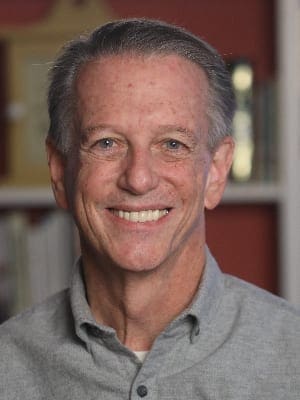On New Year’s a friend e-mailed a proposal for peace by popular author Deepak Chopra. This friend used to be normal: a grandmother, a secretary, the organist in a Baptist church. Somewhere along the way a passion awoke in her about how America might become a nation of peace.
I almost hit the delete button. Call it pessimism, or realism. Frankly, I’d seen Chopra’s face in airport bookstores and when channel surfing and had labeled him as another New Age answer-man.
Out of friendship I read the article.
Maybe it was the timing of New Year’s with all the resolutions and stuff, but I too am intrigued by Chopra’s simple yet bold request to our President-elect to reframe our national direction from warring to peace with nine basic steps.
1. Scale out arms dealing and make it illegal by the year 2020.
2. Write into every defense contract a requirement for a peacetime project.
3. Subsidize conversion of military companies to peaceful uses with tax incentives and direct funding.
4. Convert military bases to housing for the poor.
5. Phase out all foreign military bases.
6. Require military personnel to devote part of their time to rebuilding infrastructure.
7. Call a moratorium on future weapons technologies.
8. Reduce armaments like destroyers and submarines that have no use against terrorism and were intended to defend against a superpower enemy that no longer exists.
9. Fully fund social services and take the balance out of the defense and homeland security budgets.
I don’t like every point (No. 4 would likely result in quarantining the poor). And I can’t claim to have done the math on how the other ideas would work. But who else is making such bold proposals and calling for a radical reframing of our nation’s self-understanding?
Is it possible for a national discussion to emerge on the subject of peace? Is peace even a consensus goal for Americans? And how would we get to peace? Would we as a nation and as individuals be willing to make concessions in our own security and lifestyle for there to be peace between nations? As Chopra notes, ultimately, empire follows the dollar. Pardon the pun, but could we buck this trend?
The same morning I read Chopra’s proposal I also read an article in our local newspaper about the 10-year transformation of our city’s riverfront from scrap yards and asphalt plants to a beautiful urban park that will soon include a memorial to Abraham Lincoln.
Someone had a vision for this site that transcended the realities of a decade ago, and cobbled together enough clout and consensus to tackle seemingly insurmountable odds.
Is a similar bold vision possible for a reformation of our nation?
Joe Phelps is pastor of Highland Baptist Church in Louisville, Ky., and a board director for the Baptist Center for Ethics.
A minister in Louisville, Kentucky, for 21 years as pastor of Highland Baptist Church, Phelps is now Justice Coordinator for Earth and Spirit Center. He leads, along with Kevin Cosby, EmpowerWest, a black-white clergy coalition calling for recognition, repentance, and repair of injustices to black Louisvillians.

